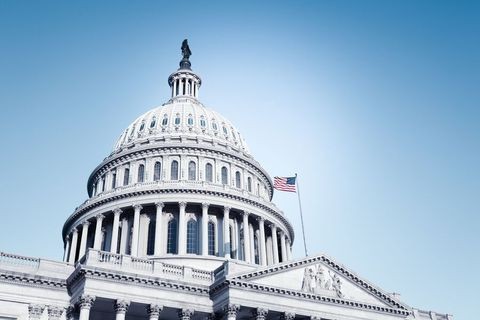Pesticides
Overview
We Know the Industry: Crowell & Moring's pesticide practice group provides broad-based, practical, industry-focused legal counsel to leading multinational pesticide companies, trade associations and testing consortia with operations and interests in the United States, Europe, and Asia. Pesticides are among the most heavily regulated and scrutinized products in commerce. This is partly due to the fact that pesticides are intended to control a pest, and they are widely used in so many different settings where exposure to non-target organisms is possible. Agricultural pesticides are used on millions of acres of cropland, orchards, forests, and nurseries; consumer pesticide products such as insect repellents and turf products are used in virtually every residential setting; and antimicrobial products are used indoors in both industrial and residential settings.
Insights
Client Alert | 6 min read | 08.20.24
EPA’s First Emergency Suspension in Nearly 40 Years Targets Pesticides Containing DCPA
On August 6, 2024, the Environmental Protection Agency (“EPA”) took the rare action of announcing the emergency suspension of all registrations for pesticide products containing the active ingredient dimethyl tetrachloroterephthalate (“DCPA” or “Dacthal”) under the Federal Insecticide, Fungicide, and Rodenticide Act (“FIFRA”). This is the first time in almost 40 years that EPA has issued an emergency suspension order.[1] EPA’s reasoning for the present action is that DCPA can cause adverse health effects in the fetuses of women exposed to DCPA.
Publication | 05.24.23
Pesticides, Chemical Regulation, and Right-to-Know Committee Report
Webinar | 01.12.23
Speaking Engagement | 01.12.23
“What Will the New Year Bring for Government Contractors?” Crowell & Moring Webinar, 2023
Representative Matters
- Counseling and representing companies and testing consortia in connection with product registration and registration review under FIFRA (including conventional crop protection products, plant incorporated protectants (PIPs), biocides, and other industrial, institutional, and residential-use products).
- Counseling on labeling and testing requirements, import and export requirements, marketing claims, new product development, reporting and record-keeping requirements, and the applicability of new regulations and evolving agency guidance.
- Representing pesticide registrants and testing consortia in FIFRA data compensation disputes, including efforts to negotiate settlements, and cost-effective participation in arbitration proceedings where settlement efforts have proved fruitless.
- Representing companies and respondents with regard to petitions to deny or cancel pesticide product registrations under FIFRA.
- Representing pesticide manufacturers and Crop Life America, the principal trade association representing manufacturer interests, in addressing novel issues arising from the interface between the Endangered Species Act (ESA) and FIFRA. These representations have included several litigations involving key issues of first impression.
- Representing the Consumer Specialty Products Association (CSPA), including their Antimicrobial Division and Pest Management Division before EPA’s Office of Pesticide Regulation. CSPA represents household and institutional brands of formulated products.
- Representing pesticide testing consortia, including the Industry Task Force II on 2,4-D Research Data, the MCPA Task Force, the MCPP-p Task Force, the 2,4-DB Task Force, and the Joint Glyphosate Task Force.
- Advising clients on compliance with international regulatory regimes, such as the European Union’s Plant Protection Directive and the Biocide Products Regulation.
- Representing testing consortia and individual companies before Canada’s Pest Management Regulatory Agency under that country’s Pest Control Products Act.
- Representing registrants before EPA in FIFRA section 6 suspension and cancellation hearings, including cancellation hearings on chlordane/heptachlor, diazinon, and dinoseb.
- Defending companies in enforcement actions.
- Counseling chemical and pesticide companies on the opportunity to mitigate the risk of civil penalties under FIFRA through the effective use of EPA’s Self-Policing (“Audit”) policy.
Insights
Client Alert | 6 min read | 08.20.24
EPA’s First Emergency Suspension in Nearly 40 Years Targets Pesticides Containing DCPA
On August 6, 2024, the Environmental Protection Agency (“EPA”) took the rare action of announcing the emergency suspension of all registrations for pesticide products containing the active ingredient dimethyl tetrachloroterephthalate (“DCPA” or “Dacthal”) under the Federal Insecticide, Fungicide, and Rodenticide Act (“FIFRA”). This is the first time in almost 40 years that EPA has issued an emergency suspension order.[1] EPA’s reasoning for the present action is that DCPA can cause adverse health effects in the fetuses of women exposed to DCPA.
Publication | 05.24.23
Pesticides, Chemical Regulation, and Right-to-Know Committee Report
Webinar | 01.12.23
Speaking Engagement | 01.12.23
“What Will the New Year Bring for Government Contractors?” Crowell & Moring Webinar, 2023
Insights
50 Years On, It's Time to Do Some Serious Thinking About the Clean Air Act
|01.01.22
EM Plus Magazine, Air & Waste Management Association
Pesticides and the Federal Insecticide, Fungicide, and Rodenticide Act (FIFRA),
|07.10.19
Environment, Energy, and Resources Law: The Year in Review 2018, at 89
Litigation Forecast 2013: What Corporate Counsel Need to Know for the Coming Year
|01.31.13
Crowell & Moring LLP publication
EPA’s Shift In Chemical and Hazardous Materials Regulation and What Retailers Can Expect
|10.27.21
Crowell & Moring’s Retail & Consumer Products Law Observer
Insights
Client Alert | 6 min read | 08.20.24
EPA’s First Emergency Suspension in Nearly 40 Years Targets Pesticides Containing DCPA
On August 6, 2024, the Environmental Protection Agency (“EPA”) took the rare action of announcing the emergency suspension of all registrations for pesticide products containing the active ingredient dimethyl tetrachloroterephthalate (“DCPA” or “Dacthal”) under the Federal Insecticide, Fungicide, and Rodenticide Act (“FIFRA”). This is the first time in almost 40 years that EPA has issued an emergency suspension order.[1] EPA’s reasoning for the present action is that DCPA can cause adverse health effects in the fetuses of women exposed to DCPA.
Publication | 05.24.23
Pesticides, Chemical Regulation, and Right-to-Know Committee Report
Webinar | 01.12.23
Speaking Engagement | 01.12.23
“What Will the New Year Bring for Government Contractors?” Crowell & Moring Webinar, 2023










